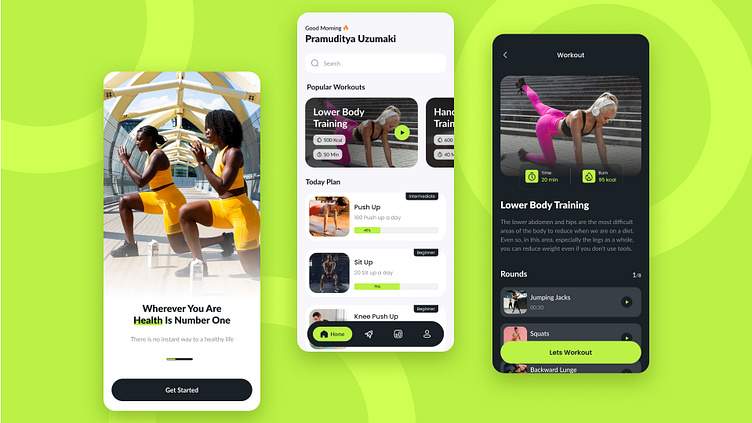Fitness App Development | Strivemindz
Fitness app development presents a unique opportunity to merge technology with health and wellness, creating a positive impact on users' lives. This explores the key aspects of fitness app development, highlighting the features, technologies, and benefits that make these apps indispensable for users and a lucrative venture for developers. As the demand for fitness solutions continues to grow, investing in innovative fitness app development is a step towards a healthier future for all.
Key Features of a Fitness App
1.) User Profile and Personalization: Personalization is crucial in fitness apps. Users should be able to create profiles, set goals, and track their progress. The app can offer personalized workout plans and dietary recommendations based on user data.
2.) Workout Routines and Plans: A comprehensive library of workout routines catering to different fitness levels and goals is essential. Video demonstrations, step-by-step instructions, and the ability to schedule workouts enhance user experience.
3.) Activity Tracking: Integration with wearable devices and smartphones for tracking physical activities such as running, cycling, and swimming. GPS functionality, step counters, and calorie trackers provide users with detailed insights into their performance.
4.) Diet and Nutrition Management: Nutritional guidance, meal planning, and calorie tracking help users maintain a balanced diet. Barcode scanners for food items and a vast database of nutritional information can simplify this process.
5.) Progress Monitoring: Visual representation of progress through charts, graphs, and achievements. Regular updates and notifications keep users motivated and engaged.
6.) Social and Community Features: Community building features like social sharing, challenges, and leaderboards foster a sense of competition and camaraderie among users.
7.) In-App Purchases and Subscriptions: Monetization strategies such as premium memberships, in-app purchases for advanced features, and personalized coaching sessions.
Technologies and Tools
Mobile Platforms: Development for both iOS and Android platforms ensures maximum reach. Utilizing Swift for iOS and Kotlin for Android guarantees optimal performance and user experience.
Wearable Integration: Compatibility with popular wearable devices like Apple Watch, Fitbit, and Garmin to provide seamless tracking of physical activities.
Cloud Services: Cloud-based services for data storage, user management, and scalability. Firebase and AWS are popular choices for backend support.
AI and Machine Learning: Implementing AI/ML for personalized workout recommendations, dietary suggestions, and predictive analytics to enhance user experience.
AR and VR: AR/VR technology features for immersive workout experiences. Virtual trainers and AR-enhanced environments can make workouts more engaging.
Benefits for Users
Convenience: Access to a wide range of workouts and nutritional information anytime, anywhere. Fitness apps eliminate the need for expensive gym memberships and personal trainers.
Customization: Personalized fitness plans tailored to individual needs and preferences ensure effective and enjoyable workouts.
Motivation and Accountability: Regular progress tracking, achievements, and social features keep users motivated and accountable for their fitness journey.
Comprehensive Health Management: Integration of fitness tracking, dietary management, and health monitoring in one app provides a holistic approach to wellness.
The Final Thought
Fitness app development stands at the intersection of technology and health, offering unprecedented opportunities to improve individual well-being. These apps cater to the diverse needs of users, from beginners seeking guidance to seasoned athletes aiming to enhance their performance. By incorporating key features such as personalized workout plans, comprehensive activity tracking, dietary management, and social engagement, fitness apps provide a holistic approach to health and fitness.
The integration of advanced technologies like AI/ML, AR/VR further enhances the user experience, making fitness journeys more personalized, interactive, and engaging. Additionally, seamless integration with wearable devices ensures accurate tracking and monitoring, offering users detailed insights into their progress.
From a business perspective, fitness apps represent a lucrative venture with multiple monetization opportunities, including subscriptions, in-app purchases, and partnerships. The potential for high user engagement and retention, coupled with the growing demand for digital health solutions, makes fitness mobile app development a wise investment.
